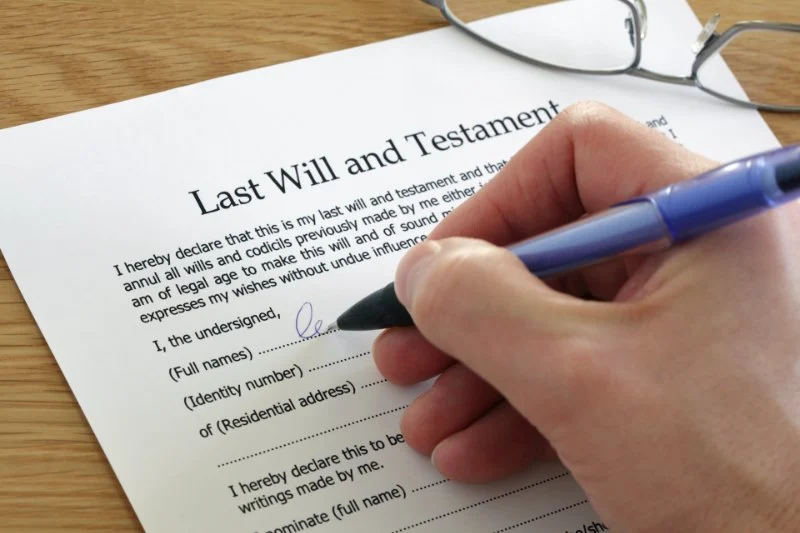
- 1-Introduction: Why Writing a Will is Important
- 2-Steps to Writing a Valid Will
- 3-Common Mistakes to Avoid When Writing Your Will
- 4-Legal Considerations for a Will
- 5-Concluding Thoughts on Writing a Will
1-Introduction: Why Writing a Will is Important
Writing a will is one of the most important steps you can take to ensure that your assets and belongings are distributed according to your wishes after you pass away. However, many people avoid writing a will because they find it uncomfortable or assume they don’t need one. The reality is that without a will, your estate could be divided in a way you would not have chosen, potentially leading to disputes among family members and complications for loved ones left behind. In this guide, we will take you through the steps of writing a will, common mistakes to avoid, and important legal considerations.
2-Steps to Writing a Valid Will
Creating a legally valid will requires careful thought and attention to detail. Below are the essential steps to guide you through the process:
Step 1: Choose an Executor
Your will needs an executor—someone you trust to carry out your wishes after your death. This person will be responsible for ensuring that your assets are distributed according to the will and managing any debts or taxes. Choose someone who is responsible and reliable.
Step 2: List Your Assets
Make a detailed list of your assets, including property, bank accounts, investments, and personal belongings. This will ensure that your executor can identify and manage your estate effectively. Don’t forget digital assets such as online accounts and cryptocurrency!
Step 3: Choose Beneficiaries
Decide who will inherit your assets. You may choose family members, friends, or organizations. Clearly specify what each beneficiary will receive. It’s important to be as clear as possible to avoid any confusion later on.
Step 4: Appoint Guardians (if applicable)
If you have children under the age of 18, it is crucial to appoint a guardian to care for them. This decision is one of the most important you will make, as it ensures your children are cared for by someone you trust.
Step 5: Sign the Will and Witnesses
Your will needs to be signed by you and witnessed by two individuals who are not beneficiaries. Witnesses must be over the age of 18 and should not have a financial interest in the will. Make sure your witnesses are present when you sign the will to ensure its validity.
3-Common Mistakes to Avoid When Writing Your Will
Writing a will is a serious matter, and there are several common mistakes people make. Here are some to watch out for:
1. Not Updating Your Will
As life changes—through marriage, the birth of children, or the acquisition of new assets—it’s important to update your will. Failing to keep your will up to date can result in outdated beneficiaries or incorrect asset distributions.
2. Using Ambiguous Language
Using vague language in your will can lead to confusion or disputes among your beneficiaries. Be as clear and specific as possible, outlining who gets what, and under what circumstances.
3. Failing to Consider Taxes
Failing to consider tax implications can result in your beneficiaries having to pay more than expected. It’s a good idea to consult with a legal expert to understand how taxes will impact your estate.
4-Legal Considerations for a Will
Writing a will involves certain legal considerations that vary by state. Here are some key points to remember:
1. Legal Age and Mental Capacity
In most states, you must be at least 18 years old to write a will. Additionally, you must be of sound mind and capable of understanding the nature of your actions when making the will. If there are concerns about your mental capacity, it is best to consult a legal professional.
2. Witnesses and Notarization
As mentioned earlier, your will must be signed by you and witnessed by at least two individuals. Some states may also require notarization for added security. Be sure to check your state’s requirements to ensure your will is valid.
3. Consider a Trust
If you have significant assets or complex estate planning needs, you may want to consider setting up a trust in addition to a will. A trust can help you manage assets during your lifetime and ensure a smoother transition of wealth after death.
5-Concluding Thoughts on Writing a Will
Writing a will is an essential part of planning for the future, ensuring that your wishes are carried out and your loved ones are cared for. By following the steps outlined above, avoiding common mistakes, and keeping legal considerations in mind, you can create a will that provides peace of mind for you and your family.
If you're unsure about any part of the process, seeking expert legal advice can help you navigate the complexities of will writing. To get personalized advice and guidance, visit Barber Law Hub for more resources on will creation and estate planning.









 Karina Carbone Agazzi P.C.4.0 (7 reviews)
Karina Carbone Agazzi P.C.4.0 (7 reviews) Georgelis, Larsen & Sabatino Injury Law Firm, P.C.5.0 (22 reviews)
Georgelis, Larsen & Sabatino Injury Law Firm, P.C.5.0 (22 reviews) Voyant Legal5.0 (177 reviews)
Voyant Legal5.0 (177 reviews) Spodek Law Group P.C. Criminal Defense5.0 (976 reviews)
Spodek Law Group P.C. Criminal Defense5.0 (976 reviews) Attorney Big Al — Law Office of Kenneth Klein4.0 (145 reviews)
Attorney Big Al — Law Office of Kenneth Klein4.0 (145 reviews) Rachelle N. Howell, Attorney at Law3.0 (60 reviews)
Rachelle N. Howell, Attorney at Law3.0 (60 reviews) Law Made Simple: Understanding Child Custody Laws in Simple Terms
Law Made Simple: Understanding Child Custody Laws in Simple Terms How to Avoid Common Legal Mistakes When Buying a Home – Expert Advice
How to Avoid Common Legal Mistakes When Buying a Home – Expert Advice How to Expunge a Criminal Record – A Complete Guide
How to Expunge a Criminal Record – A Complete Guide Your Rights During a Police Stop – Expert Legal Advice for Citizens
Your Rights During a Police Stop – Expert Legal Advice for Citizens Your Rights During a Police Stop – Essential Guide to Stay Safe and Protected
Your Rights During a Police Stop – Essential Guide to Stay Safe and Protected A Beginner’s Guide to Small Claims Court
A Beginner’s Guide to Small Claims Court